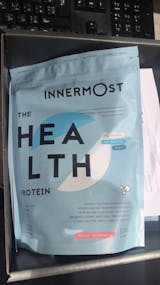We’ve all been there – your rest day lasted a little bit too long. Talk about rest week, or maybe even rest month(s). Now you’re stuck in the vicious cycle of wanting to get back into it, but not wanting to get back into it because you just know that you’ve lost some of that all-important progress that you made in terms of fitness, stamina and technique.
Don’t worry – it’s totally normal. And more so something that we’ve all struggled with. But why does exercise get harder when we’ve been doing less? What is the science behind becoming unfit?
Well, Leeds University have provided the answers. The answers we’ve all been waiting for, more accurately.
But first, what do we technically mean by ‘unfit’ and is it truly feasible to always maintain fitness? Why is it that exercise gets harder?
Here’s what ‘unfit’ really means
When one describes a physically unfit person, there are a few key signs and features that are considered. It’s important to note that being described as unfit isn’t a personal or even negative description, just one that considers physical and psychological attributes and abilities.
Key signs of an ‘unfit’ person include:
- Laboured breathing
- Chronic illness
- Excess weight
- Insomnia
- A high resting heart rate
- Diabetes
- Heart disease
- High blood pressure
The study: why exercise gets harder the less you do
The brand-new study released by students from The University of Leeds investigates the age-old conundrum around a decrease in performance and ability following a lack of exercise.
The study was conducted through the observation of mice, chosen due to our sharing of a particular protein: Piezo1, a blood flow sensor that is thought to have a pretty large impact on the transportation of blood to the muscles, and as a result, of course, on our performance during exercise.
The study (and the mice) highlighted a crucial link between exercise and the production of the Piezo1 protein, showing that the less exercise we do, the less of this protein is produced, and thus when we do eventually reengage in said exercise, it’s levels are limited.
Aka – exercise gets harder because our ability to exercise reduces from a scientific perspective. This shows its actually nothing to do with motivation at all, either.
So, how can we maintain fitness?
From these findings, and from our understanding of health and wellness, its clear that maintaining fitness is pretty important. We’re only human, and we all slip up from time-to-time, but by putting in that extra bit of effort, we can make things easier for ourselves in the long run.
If you’re struggling to get fitter or to maintain your motivation, try out some of the below tips and remember whilst you should always push yourself to do better, it’s just as important to listen to your body and rest when you need it. That’s all part of progress, too.
- Keep it up, little and often
When we talk about exercise, that doesn’t always have to mean an extended session at the gym, all-day every day. It’s all about getting examples of exercise in little and often.
Walk to the corner shop rather than drive, take advantage of your lunch break and go on a quick walk, get outside and go for a short run around the block, or even cycle to work (where you can) when the weather is nice.
These are all great examples of integrating exercise into your routine in a realistic and manageable way!
-
Set realistic goals
If you haven’t been on a run in a little while and you’re thinking of running a marathon next week, we’re going to go out on a limb here and say it’s probably not the best idea. Aside from setting yourself up for a pretty painful experience, it’s quite likely that you’ll injure yourself here.
So, whilst its admirable that you’re setting your sights and expectations high – and whilst we have no doubt that you’ll get to that marathon finishing line following a good training regime, make sure that the goals you set are realistic, and you’re able to hit them often to keep those motivation levels tip-top.
-
Create attractive rewards
If you planned to go to the gym 3 times this week and you went 3 times: you’ve got to reward yourself. Whether that’s an extra 30 minutes in bed, a cheeky extra treat on the shopping list, or even that pair of shoes you’ve been eyeing up online, treat yo’ self! It’s all about recognising your achievements and rewarding yourself for them.
-
Bring a buddy
Exercising can be boring if you’re lacking the motivation, but you’d be surprised how much your mood changes if you bring a friend along for the ride. Whether its your parent, friend, colleague or even your dog that joins you for that evening run around the park, you don’t always have to go solo.
-
Fuel yourself sufficiently
Exercising too hard can leave you feeling completely depleted of energy, and actually be detrimental to your physical development. Make sure you're feeding your body with ingredients that will help you to recover and replenish fully to avoid injuries that might take you off course for longer than you'd hope. Try The Recover Capsules to give your body the nutrients it needs, along with a protein blend to support muscle recovery and development.
























